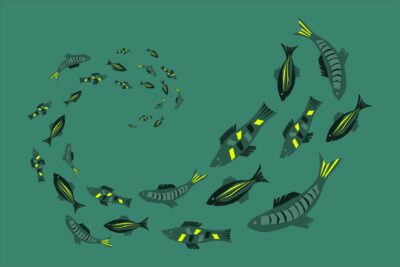It is true that fish flesh contains good amounts of protein and essential fatty acids, but eating it is the main way we are exposed to heavy metals and other toxic contaminants, which can have serious effects on our health. Of these, mercury may be the most worrying.
Mercury gets into fish from the polluted waters that the poor animals swim in, and the larger the fish, the more mercury they may have accumulated. This is because when big fish eat smaller fish, they ingest all their mercury, too, and it all gets stored in their own bodies. One study found that as much as 84 percent of the world’s fish contains unsafe levels of mercury.
How big a problem is mercury? Well, it is a highly toxic metal and has an effect on the kidneys specifically, but also on the liver, and on the nervous, immune, reproductive, and developmental systems. The World Health Organization says: “Exposure to mercury—even small amounts—may cause serious health problems and is a threat to the development of the child in utero and early in life.” Up to 10 percent of Americans of childbearing age carry enough mercury in their bloodstreams to put their developing children at increased risk for developmental problems. And where does it come from?
According to the United States Environmental Protection Agency: “The most common way people in the U.S. are exposed to mercury is by eating fish containing methylmercury.”
Why take the risk? Protein and essential fatty acids can be found plentifully on a plant-based diet, without the risks of consuming toxic mercury.



